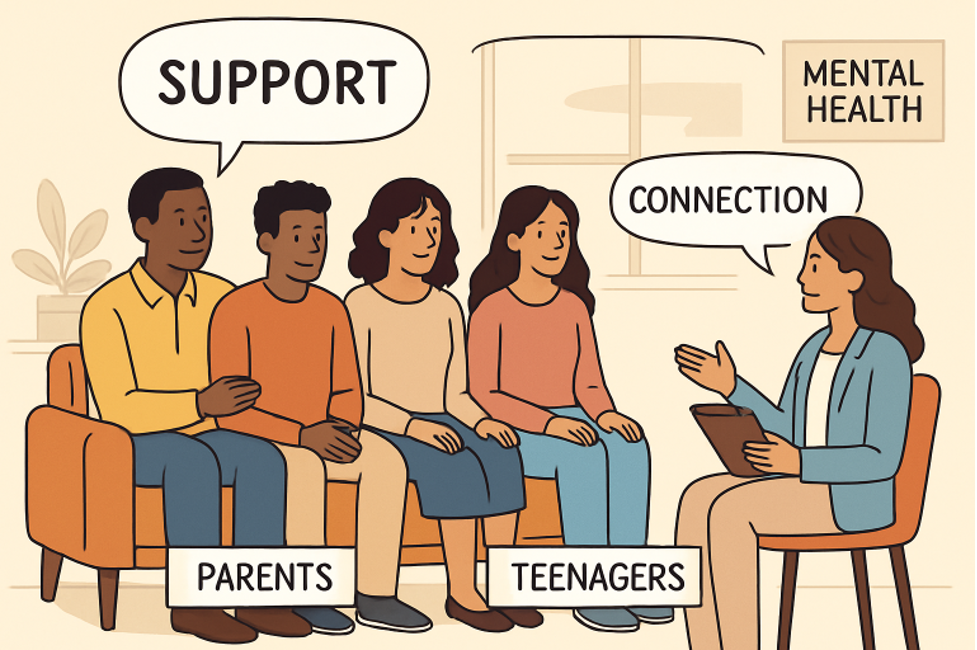Outpatient mental health care offers flexible, structured support that helps teens address emotional challenges while staying engaged. These programs emphasize early intervention, skill-building, and coping strategies, empowering adolescents to navigate stress, relationships, and academic pressures. Families are actively involved, fostering open communication and stronger bonds. By blending professional guidance with everyday experiences, these services promote resilience, encourage long-term emotional wellness, and provide a supportive framework for growth without disrupting school, friendships, or home routines.
Why Resilience Matters for Teens and Families
Resilience is the ability to adapt and recover from adversity, setbacks, or significant sources of stress. For teens and families, cultivating resilience is vital—not only is it a protective factor against mental health challenges, but it also strengthens emotional bonds and equips individuals with tools to handle life’s unpredictable circumstances. Resilient families tend to experience improved emotional well-being, stable physical health, and richer social connections, all essential for thriving during adolescence and beyond.
Access to adequate support is foundational in promoting resilience, particularly during struggle. Outpatient mental health care is a practical, flexible solution that empowers teens and families with coping strategies and ongoing encouragement. Providers like New Harbor Behavioral Healthcare offer environments where teens and their families can build resilience at home, work through challenges, and promote healthy development without disrupting daily life.
Common Challenges Teens and Families Face Today
Adolescents are encountering unprecedented stressors in today’s world. Data from the Centers for Disease Control and Prevention (CDC) underscores the growing prevalence of anxiety, depression, and behavioral health concerns among young people. Social media pressures, intense academic demands, and changing family dynamics can all heighten emotional struggles, making resilience more relevant than ever.
Barriers such as stigma, accessibility challenges, and limited healthcare resources can delay support when needed. Recognizing these hurdles is crucial in advocating for timely and effective interventions that can help teens and their families foster resilience and overcome hardship.
Outpatient Care: An Accessible Option for Ongoing Support
Outpatient mental health care for teens typically features regularly scheduled therapy sessions, skill-building workshops, and collaboration with other healthcare or educational providers. Unlike inpatient treatment, outpatient care allows adolescents to remain engaged in school, family activities, and peer relationships. This approach is often less disruptive and more cost-effective, making it an attractive option for ongoing mental health support.

One significant strength of outpatient care is its flexibility. Treatment plans can adapt as teens grow, change schools, or encounter new challenges. Providers work closely with families to ensure care addresses emerging needs, providing a stable foundation for resilience in the face of evolving stressors.
Practical Strategies for Building Resilience at Home
Daily Routines that Promote Stability
Consistent routines provide teens with a sense of predictability and security. Simple actions like shared family meals, designated study times, and regular sleep schedules foster stable environments where young people can recover from stress and recharge.
Effective Communication and Active Listening
Open, judgment-free conversations are key to building trust and emotional resilience. Parents and caregivers can practice active listening by giving their full attention, reflecting what they hear, and validating feelings—even when disagreeing. This approach reassures teens that their concerns are taken seriously and sets a foundation for mutual respect.
Encouraging Healthy Coping Skills and Self-Care
Teaching and modeling self-care habits—like physical activity, mindfulness, and creative expression—can help teens navigate challenging situations. Please encourage them to try different coping strategies and let them know asking for help when needed is okay.
Involving the Whole Family: Strengthening the Support System
Research from the American Psychological Association affirms the vital role parents and caregivers play in adolescent mental health recovery and prevention. Supportive family environments—where empathy, encouragement, and responsibility are modeled—help buffer children from stress and foster greater resilience.
Engaging in shared activities, like problem-solving games, family volunteering, or outdoor adventures, deepens bonds and reinforces positive coping behaviors for all family members.
Working with Mental Health Professionals
Families entering outpatient mental health care should expect a collaborative approach. Therapists and counselors use evidence-based techniques to help teens address emotional challenges, while also involving families in treatment planning and progress checks. Support often extends to working with schools and pediatricians to create unified strategies.
Before starting outpatient care, it’s helpful to ask providers about their approach, communication preferences, and expectations for family involvement. This ensures everyone understands their role and fosters a sense of partnership.
Recognizing Progress and Setbacks
Tracking progress is essential for motivation and continued growth. Families can use journals, mood-tracking apps, or regular family check-ins to reflect on improvements and note areas for adjustment. Celebrating small successes—like trying a new coping skill or openly discussing challenges—reinforces the value of resilience.
Setbacks are a natural part of the recovery journey. When challenges arise, responding with compassion and patience helps teens learn from the experience and strengthen their coping muscles for the future.
Community Resources and Next Steps
Beyond professional care, connecting with community resources such as peer support groups, school counselors, and local mental health organizations can expand a teen’s support network. Many families find valuable educational materials and helplines through organizations like NAMI and the CDC.
If new or worsening symptoms occur or families feel overwhelmed, reaching out early for additional help can prevent crises and keep growth on track. Outpatient care is just one piece of the puzzle—partnerships with community resources and ongoing education can make a lifelong difference in resiliency for teens and their families.
Conclusion
Fostering resilience in teens and their families requires professional guidance, open communication, and consistent emotional support. Outpatient care offers a flexible framework for addressing mental health needs while allowing everyday routines to continue. By combining therapy, skill-building, and family involvement, these programs strengthen coping abilities, encourage healthier relationships, and empower individuals to navigate challenges with confidence. Over time, this collaborative approach promotes lasting well-being, helping teens and their families adapt, grow, and thrive in an ever-changing world.




